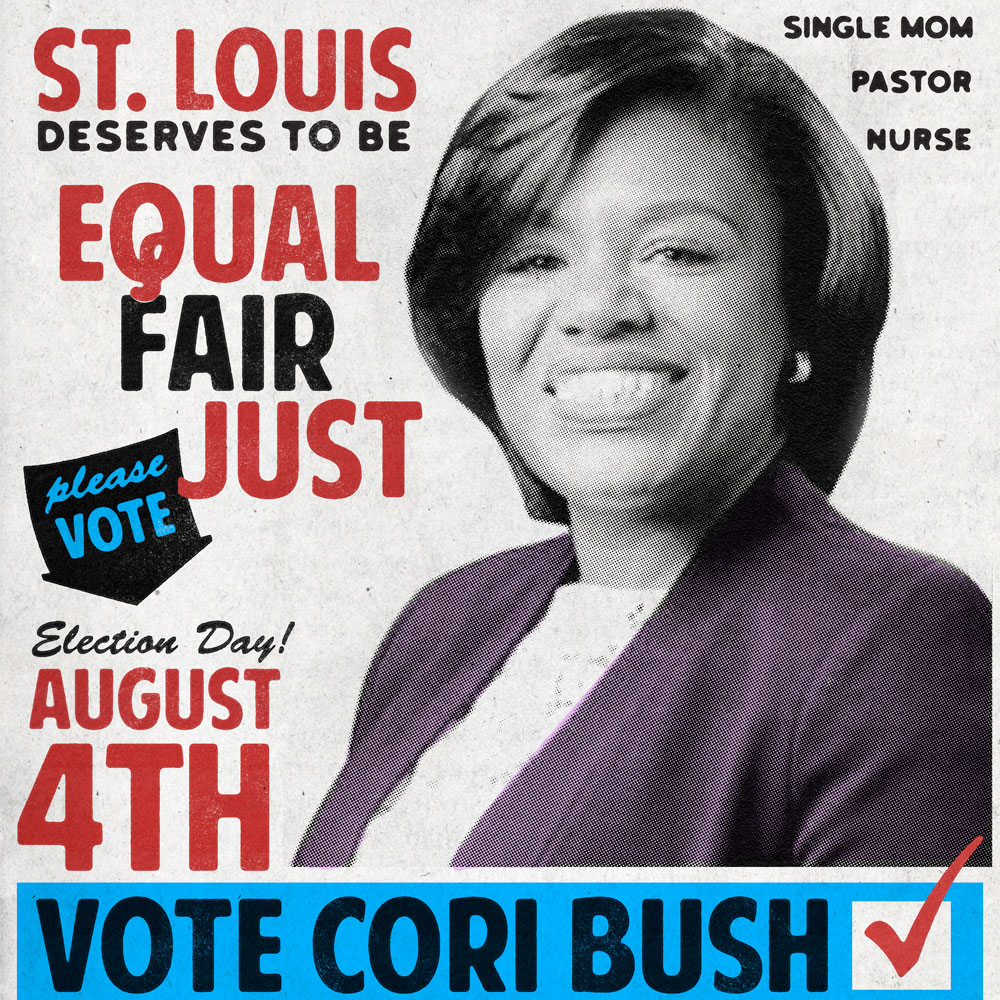
August 5, 2020; The Guardian and The Intercept
The Democratic Caucus in the House of Representatives will look different after the 2020 election. A number of its longtime “political dynasty” seats will be occupied by newcomers whose voices and experiences come from the streets and have emerged from the protests of the last few years.
This was clearly in evidence this week when Missouri activist Cori Bush unseated Rep. William Lacy Clay (R-MO), who had held the seat for 19 years and whose father had held it for 30 years before him. Bush, a registered nurse and pastor, challenged and lost to Clay in 2018 but took the lead on election day by three percentage points.
“It is historic that this year, of all the years, we are sending a Black, working-class single mother who’s been fighting for Black lives since Ferguson all the way to the halls of Congress,” Bush says.
This victory, that of Jamaal Bowman from New York (who defeated Eliot Engel), and that of Marie Newman in Illinois, who took down Rep. Daniel Lipinski—both of whom were longtime incumbents—are cause for sitting House members to stand up and take notice. Like members of “The Squad” elected in 2018 (Alexandria Ocasio-Cortez of New York, Ilhan Omar of Minnesota, Ayanna Pressley of Massachusetts, and Rashida Tlaib of Michigan), there is an expectation that these new faces, who will now be elected to the House from safe Democratic districts, will bring new ideas and new ways to a very traditional system.
But it should be noted that Cori Bush focused her campaign upon issues that meant the most to her constituents. She targeted immigration, criminal justice, prison reform, and gender and LGBTQ equality. Her campaign supported Medicare for All, the Green New Deal, and housing reform, which won her an endorsement and support from Bernie Sanders. She talked about education equity and public safety, and the needs of working people via economic justice.
Sign up for our free newsletters
Subscribe to NPQ's newsletters to have our top stories delivered directly to your inbox.
By signing up, you agree to our privacy policy and terms of use, and to receive messages from NPQ and our partners.
All in all, Cori Bush shared much with her constituents, the people of her district. As her campaign materials said:
I fight because I know what it’s like to live paycheck to paycheck, to be burdened with student and medical debt, and to live day to day in St. Louis where poverty is violence, crime is rampant, and our unhoused community grows daily. We need a champion for policies that will affect residents of Missouri’s 1st directly. I AM that champion.
Bush garnered attention in 2018 when she was one of four candidates featured in the documentary film Knock Down the House, which followed the candidacies of four progressive women. She cut her teeth on the Ferguson unrest of 2014 and continued to organize with Black Lives Matter after the killing of George Floyd this year. While she was endorsed by Sen. Sanders, no other members of the House or Senate made endorsements in this primary, speaking to both the power of incumbency, and also to the ties associated with various caucuses.
Clay’s father, William Clay, Sr. was a civil rights activist had co-founded the Congressional Black Caucus. A level of respect for both father and son seems to have kept their colleagues from taking sides in this race. (Bowman, having won his primary in New York, did endorse Cori Bush.)
It’s interesting to note that Missourians raised their voices on a number of progressive political fronts this week. They also approved expansion of Medicaid, the government health insurance program for low-income Americans, giving 250,000 Missourians access to the program starting next year. Governor Mike Parsons opposed that ballot initiative, but the people have spoken. Now, only another legislative initiative brought to the voters can change it.
What impact will these new voices and ideas have on a government so caught up in partisan infighting and shifting its attention from crisis to crisis? Will there be a progressive push? Is the power of incumbency waning? And, as our population demographics shift younger (a close examination of detailed age data from the Census Bureau released last month shows that more than half our country’s total population are now Millennials or younger), what will that mean for political races? Cori Bush’s victory may be a harbinger of the future.—Carole Levine













